We reviewed the Ed Dupas album “A Good American Life” in August 2015 and Allan was extremely impressed, picking out “Flag” as one of his top five songs of the year. Our good friends at Gpromo asked Ed to contribute to the High Fives feature and he pulled out all the stops with this insight into his most listened-to albums. Many thanks to Ed for this great piece and a wonderful album.
 John Denver – “An Evening with John Denver” (Vinyl)
John Denver – “An Evening with John Denver” (Vinyl)
It was the mid-to-late seventies and we had a Curtis-Mathes television with a turntable and two speakers that flanked the screen on either side, all built into a (sort of) fancy wooden cabinet. It was a simpler time for me and, I suppose, pretty much everyone living back then. I’d slide the large wooden living room door closed whenever I had the chance and listen to records hour after hour. “An Evening with John Denver” was my first album of choice; my first favorite. It was the album I reached for again and again at the tender age of seven.
The album faced stiff competition as my parents had pretty good tastes in music. Don McLean’s “American Pie” and Simon and Garfunkel’s “Concert in Central Park” were just a couple of the others in our collection, and they exerted a strong gravitational pull. Although I loved those records, “An Evening with John Denver” captured my imagination in a different way. My favorite song was “The Eagle and the Hawk” and I would listen to it over and over again.
I still have the album on vinyl…man, John Denver was in his prime when the record was recorded. I’ve always considered this album to be the zenith of his career.
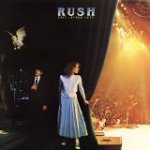 Rush – “Exit Stage Left” (Cassette Tape, Hi-Res Digital)
Rush – “Exit Stage Left” (Cassette Tape, Hi-Res Digital)
I bought this album on cassette as a teen, it was such a random purchase, so careless really. I couldn’t have known then–they had me before I even saw them coming–one minute I was a normal teen and the next I was a Rush fan. Alright, I suppose that’s not quite honest…normal teens don’t become Rush fans. Suffice to say, one minute I was something other than a normal teen and the next I was a Rush fan.
I’m not hyper-crazy or anything, sure I can probably recite most lyrics pre-1992 by heart, but I’ve only seen the band play live nine times, which in the Rush-world makes me a seasoned fan. Those Canadians, there’s gotta be something in the water, or maybe it’s something not in the water…?
“Exit Stage Left” was my first and has remained my favorite Rush record. My top track is “Red Barchetta”…but you gotta let it play through to the end of “YYZ”, that’s the trick.
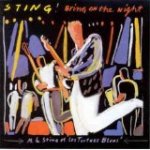 Sting – “Bring On the Night” (Cassette, Compact Disc)
Sting – “Bring On the Night” (Cassette, Compact Disc)
When I honestly consider the five records I’ve listened to over and over again–and still listen to—“Bring On the Night” has to be on the list. And why not? Branford Marsalis, Omar Hakim, and on and on, the band is grand down to the man (or woman). It was a double-cassette album, somewhat rare in that respect…and I wore those tapes out.
Bring On the Night” is a hypnotic collection of jams disguised as songs. When you listen closely to the record it’s almost as if the band is breathing, their energy ebbing and flowing. I remember one particularly tragic night in college when I was beyond sleep, I just lay awake all night with “Bring On the Night” record repeating. Thankfully I’d upgraded to CD format by then.
“I Burn for You” is my favorite song on the record, to me it’s a great example of what can happen when a group of individual musicians gel and temporarily evolve into one, albeit short-lived, entity.
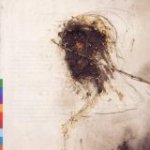 Peter Gabriel – “Passion” (Compact Disc)
Peter Gabriel – “Passion” (Compact Disc)
Originally recorded as the soundtrack for Martin Scorsese’s “The Last Temptation of Christ”, I’ve gotten more mileage out of “Passion” than any other album. In college it would play over and over again as I was writing papers or reading those God-awful tomes they call textbooks. Sometimes I would be lost in thought for hours with “Passion” dutifully playing in the background, never demanding too much attention, but when I’d stop to listen there was always something amazing to hear. I love that aspect of this record. I don’t, however, recommend it for sleeping.
I worked full-time at a cafe in college (a barista in the grunge era, no lie) and I’d let “Passion” play as the house music from time to time. It consistently got more interest than anything else. It’s a righteous record, a seeker’s record, and it’s my “going deep” album to this very day. It is my goto soundtrack when I want to power up the world-wide-web and crawl down some esoteric or scientific wormhole (and seriously…that does happen a great deal…if I wasn’t writing this right now that’s totally what I’d be doing). I set the album to repeat, press play, and let it flow together as an unbroken circle.
My favorite track is number 7, “A Different Drum”. A predictable choice, but unavoidable, really.
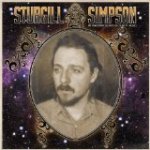 Sturgill Simpson – “Metamodern Sounds in Country Music” (Vinyl, Hi-Res Digital)
Sturgill Simpson – “Metamodern Sounds in Country Music” (Vinyl, Hi-Res Digital)
Alright, so this is a new record and, admittedly, it’s not one I’ve listened to for decades, but it’s a classic record; it was the day it was made, the world just didn’t know it yet. It’s a record that I will listen to for decades to come, so it rounds out the top 5 nicely.
Something tells me this record was a hard-fought accomplishment for Sturgill. It’s a striking concept album (with love being the concept). “Metamodern…” is a work of shared introspection in which an honest guy–a self-described ‘van driver who plays music’–gets into some seriously weighty areas of science, evolution and mysticism. With references to Stephen Hawking’s “A Brief History of Time”, Pierre Teilhard de Chardin’s “The Phenomenon of Man”, and numerous esoteric traditions, Sturgill shows himself to be an interestingly learned man (and it’s not the kind of stuff they teach in school). You can’t just write an album like “Metamodern…”, you have to live it, become it. As the record states, ‘you have to let go so the soul may fall’.
“Metamodern…” is a masterpiece recorded on a $4000 working budget. In the music industry that’s not a shoestring budget, that’s a fraction of a shoestring budget. There are some of us out here that need to believe that kind of thing is possible…that a true artist, motivated by inspiration and his or her desire to share their unique gifts with the world can find a way to do that, despite all the obstacles. If this sort of thing appeals to you like it does me I highly recommend “Metamodern Sounds in Country Music”. Nashville has consistently ignored Sturgill, but the people love him. I’m OK with that, and I’d guess that Sturgill is too. I don’t think he had Nashville in mind when he made this record.
I highly recommend track 8, “Just Let Go”. ‘Woke up today and decided to kill my ego…’
And the people love it…it’s an interesting time to be alive.
David Young is the guitarist and songwriter with Space Elevator, who released their very fine debut album this year. When we asked him for a music-related Top 5, here’s what we got:
When we decided to release the Space Elevator album on vinyl I actually had to walk up the road to the local Oxfam to buy a couple of vinyl albums just to reacquaint myself with the size of the lyrics and general artwork.
This led to a fervent re-buying of most of my old vinyl all over again once I purchased a new deck. It is all (except for a couple) second hand, either from shops or e-bay.
My top five vinyl purchases so far are not necessarily my favourite five albums but the five that for some reason have given me most joy since purchasing them again in this format.
So here we go.
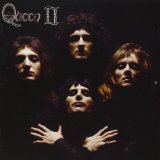 Queen 2– I was bought this for Christmas by my Gran when I was 12. It was October and she was down visiting from Glasgow. I ran home and played it before she came home on the bus, watching for her coming down the road. Once she was home that was the record gone for two whole months until Christmas. No possible way of hearing it. Tell that to a twelve year old nowadays!! It’s their best cover, inside and out!
Queen 2– I was bought this for Christmas by my Gran when I was 12. It was October and she was down visiting from Glasgow. I ran home and played it before she came home on the bus, watching for her coming down the road. Once she was home that was the record gone for two whole months until Christmas. No possible way of hearing it. Tell that to a twelve year old nowadays!! It’s their best cover, inside and out!
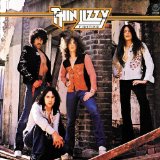 Fighting- Thin Lizzy – I bought this album when on holiday in Bournemouth when I was 14. It had the U.S. building site cover which is more tasteful than the “weaponry” of the UK version. Same cover this time. Took me right back…brilliant.
Fighting- Thin Lizzy – I bought this album when on holiday in Bournemouth when I was 14. It had the U.S. building site cover which is more tasteful than the “weaponry” of the UK version. Same cover this time. Took me right back…brilliant.
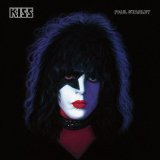 Paul Stanley – My favourite Kiss solo from 1978 was always Paul’s. I picked this up from a guy in New York on e-bay in great nick with the original poster from that awful jigsaw poster they did, and with the specific Paul merchandise sheet.
Paul Stanley – My favourite Kiss solo from 1978 was always Paul’s. I picked this up from a guy in New York on e-bay in great nick with the original poster from that awful jigsaw poster they did, and with the specific Paul merchandise sheet.
 2112-Rush – Back in the days of vinyl, I had every Rush album and treasured them. Signals was my favourite, but bizarrely I never owned 2112 on vinyl. I had a cassette. It’s great opening up the gatefold sleeve and seeing the album as it should be. I also forgot how good side 2 is!
2112-Rush – Back in the days of vinyl, I had every Rush album and treasured them. Signals was my favourite, but bizarrely I never owned 2112 on vinyl. I had a cassette. It’s great opening up the gatefold sleeve and seeing the album as it should be. I also forgot how good side 2 is!
T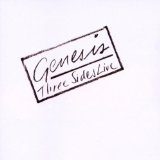 hree Sides Live-Genesis – I got into Genesis quite late and this was the first album I bought. I recently purchased it in mint condition in a shop for £4.00 It sounds absolutely superb!!
hree Sides Live-Genesis – I got into Genesis quite late and this was the first album I bought. I recently purchased it in mint condition in a shop for £4.00 It sounds absolutely superb!!
OK, I may be going back a little while here, but occasionally you see something really irritating which festers for a while (and, trust me, I can bear grudges for a long time, sometimes even longer than high-court judges) but needs an extra detonator to set it off. So, this started when I saw Gene Simmons on The One Show in November 2011 giving the audience the benefit of his opinions on the free market. Now, everyone’s entitled to hold political opinions but I really object to musicians (in the loosest sense of the word) being invited on to chat shows to talk about their band, record, ghost-written self-serving autobiography or comeback tour hijacking the interview (and hapless, unprepared presenters) to pontificate about private health care and how much better it is than publicly-funded healthcare.
I’m not saying that musicians shouldn’t have political opinions and I don’t think Gene Simmons is wrong for believing in the free market; it’s a personal opinion that he’s perfectly entitled to hold. What’s wrong is airing that opinion in a situation where you’re supposed to be plugging your latest product and relying on a reputation gained in one area (entertainment) to validate opinions on another area (economic theory). And don’t think for a second that this is just a lefty rant; Billy Bragg quoted a flawed interpretation of some flawed research in his John Peel lecture in November 2012 in support of a theory that our musicians are now all privately-educated. That’s just as bad as Gene Simmons’ grandstanding and just as lazy.
Going back even further (in an attempt to bring this back to the present), Neal Peart (drummer and lyricist of Canadian prog-rock trio Rush) is a long-time admirer of the author Ayn Rand and her Objectivist philosophy. Whatever you think of the band’s music (and I’m not a fan), you should be seriously worried about the influence of Ms Rand; and she hasn’t just influenced conspiracy theory-obsessed rock musicians. Do a bit of your own research online and you’ll see what I mean.
Personally, I’ve been putting this off for years but I finally decided to read the Ayn Rand novels and see what all the fuss is about. I’m not saying that you shouldn’t read her books; you should. I am warning you that, because of the turgid prose, it’s bloody hard work and you might find yourself being wound up by the blatant casual racism, pro-Americanism and misogyny of books written by a woman and with female leading characters. The leading male characters (the heroes) are violent towards women and the leading female characters accept this violence while moving between successive alpha males to the top of the pecking order.
What else do you need to know about the novels of Ayn Rand? One of the reasons they’re such hard work is that they feature soliloquies that go on forever, belabouring simplistic ideas with the sledgehammer/walnut principle. Speeches lasting ten pages aren’t uncommon but the piece de resistance comes towards the end of the Rand magnum opus “Atlas Shrugged” when the enigmatic central character, John Galt, makes a sixty page speech which is supposedly a three hour live TV broadcast. Call me cynical, but two hours and fifty-nine minutes of it would have been lost as viewers found more pressing things to do (re-cataloguing the stamp collection perhaps) and the first minute would have been dismissed as rhetorical nonsense.
So why do so many celebrities follow the cult of Ayn Rand? Perhaps she emphasises the importance of individual effort and worth, or perhaps it’s insecurity and the attempt to validate a life lived in the spotlight and nowhere else. All I’m saying here is be very careful about following the lead of your artistic heroes because they’re as human as you and me (Matt Bellamy and 9/11 conspiracy theories, for example). Question everything and read the source material for yourself; it’s all out there. This plaque is featured at a very famous Disney attraction in the USA; it looks fine taken out of context, but the bottom line is that the Disney organisation is legitimising an extreme right-wing author (and that’s before we start on her views on homosexuality and poverty).


